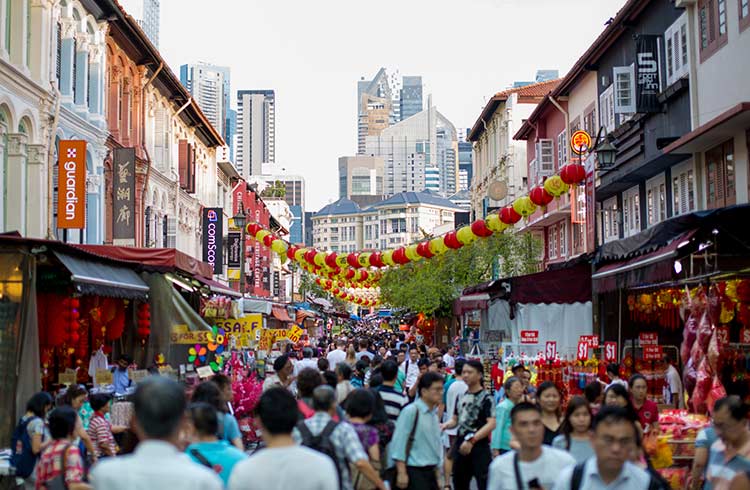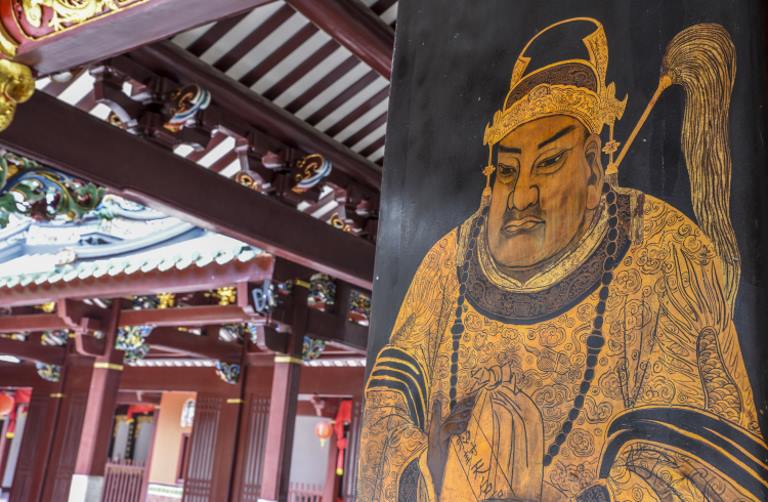What Travelers Can and Can't Bring Into Singapore
Singapore has strict laws for locals and visitors, and there are also rules governing what visitors can take into the country. Here's what you should know before you pack your bags.
 Photo © Getty Images/Whit Ng / EyeEm
Photo © Getty Images/Whit Ng / EyeEm
- Singapore's laws are tough
- Controlled and banned items
- Bringing drugs into Singapore
- Alcohol import allowances
- Cigarettes and vaping
- Red or green channel at customs?
- Goods and services tax refund
Singapore is one of the world’s most stable and wealthy nations, and this prosperity has been built, to a degree, on the clinical enforcement of strict laws. This is why tourists need to know about the following laws that may affect them on their holiday to this beautiful, modern city-state.
Singapore's laws are tough
Finding a banana in my backpack was sufficient to give me anxiety as I waited to clear immigration at Singapore Airport on one of my many visits to this country. That sounds like a major overreaction, and it was. But it’s also a reflection of the intimidating reputation that’s built up around the severity of Singapore’s laws.
How could a tourist not be a bit rattled when they hear that, in Singapore, merely chewing gum is a criminal offense?
This isn’t a myth either. Chewing gum is banned in Singapore – you cannot bring it into the country, it is not sold in Singapore, and chewing it carries a fine of at least $500. This is emblematic of how strict Singapore’s laws are.
Controlled and banned items
Aside from chewing gum, there are many more things you cannot legally bring into Singapore
Banned items include:
- firecrackers
- pornography recordings
- endangered wildlife
- psychotropic drugs
- chewing tobacco and e-cigarettes and, just for good measure, cigarette lighters shaped like a pistol
Then there are items that are controlled, which means you must apply in advance for a permit to take them into Singapore. These include firearms, explosives, plants, fruits and vegetables, meat and seafood, pharmaceuticals, handcuffs, nightsticks, live birds or fish, and telecommunications and radio equipment.
Realistically, the only one of those items which tourists are likely to be carrying is pharmaceuticals. So be sure to check exactly which medicines you can and can’t bring into Singapore without a permit on this official website.
Bringing drugs into Singapore
Singapore imposes the death penalty for drug trafficking. You’ll be reminded of this startling fact by an announcement as your plane’s about to land in Singapore. Its laws dictate that anyone caught trafficking more than 500 grams of cannabis, or 15g of heroin, can be executed.
Do not, under any circumstances, use or bring into Singapore any drug other than alcohol, tobacco or basic medications. If that doesn’t suit you, then just bypass Singapore.
Alcohol import allowances
Singapore is famously not a cheap place to drink. So, if you wish to save money on your holiday by bringing a couple of bottles of duty-free alcohol into Singapore, carefully follow its alcohol import laws:
- You must be at least 18 years old to take duty-free alcohol into this country.
- The alcohol must be for your own consumption.
- You must not be arriving from neighboring Malaysia.
- You must declare any liquor in your possession which is 0.5% alcohol content or stronger.
As long as you meet those requirements, you are free to bring in up to two liters of alcohol. But that amount must be apportioned according to one of the following five selections. One liter of spirits, plus one liter of wine. One liter of spirits, plus one liter of beer. One liter of wine, plus one liter of beer. Two liters of wine. Two liters of beer.
Planning a trip to Singapore? Find out how travel insurance can cover lost or stolen baggage, sudden illness, or other travel mishaps.
Bringing cigarettes and vape pens into Singapore
Vaping is illegal in Singapore, with fines of up to $2,000. This country also isn’t keen on cigarette smoking. Singapore has the lowest rate of tobacco consumption of any country in Southeast Asia, due to a long campaign by its government to stamp out this unhealthy habit.
Smoking cigarettes is banned in a large number of public spaces, with fines of up to SGD $500 for breaking these laws. This helps explain why Singapore does not offer duty-free on cigarettes. Tourists landing at Singapore airport in possession of tobacco products must go through the red channel, declare these tobacco products, and then pay two separate taxes on them – duty and GST. The amount of tax will depend on the volume of tobacco.
Red or green channel at customs?
If you’ve repeatedly traveled outside your home country this won’t be news to you, but it bears repeating. Singapore follows international conventions by having green and red channels (passageways) for passengers to pass through as they depart the baggage area to enter the arrivals hall.
Walk through the green channel if you know for certain you have nothing to declare. However, be warned that Singaporean customs officers may still inspect your bag. If you do have something to declare or are in any way unsure about the legality of items in your bags, pick the red channel.
Items you must declare include those that are controlled or restricted under Singaporean law or those that exceed your duty-free allowance. Surrender these items at the red channel, and you may escape punishment. Try to sneak them through the green channel, and you’re asking for trouble. Also, beware that any false declarations to customs officers carry a fine of up to SGD $10,000.
Goods and services tax refund
Like many countries, Singapore applies a Goods & Services Tax (GST) to many purchases made on its shores. The important thing for tourists to know is that, in some circumstances, you can claim this 9% tax back when you’re leaving Singapore.
That is thanks to its Tourist Refund Scheme, which applies to certain purchases of more than SGD $100. It makes sense to use this scheme if you’re buying any expensive items in Singapore, such as electronics or high-end souvenirs. Not included are things like hotel stays, meals or entry tickets for attractions.
The first step is to look for shops that have a “tax-free” sign outside, indicating they are part of this scheme. There are dozens of such businesses in downtown Singapore. Keep the receipt for this transaction and then, to get your refund, show it to staff at the Tourist Refund desks at Singapore Airport, before you fly out of the country.
Related articles
Simple and flexible travel insurance
You can buy at home or while traveling, and claim online from anywhere in the world. With 150+ adventure activities covered and 24/7 emergency assistance.
Get a quote

No Comments